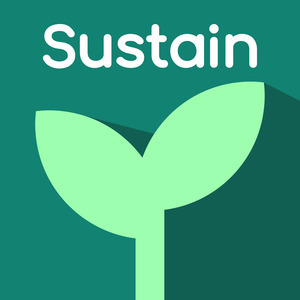Episode 127
GitHub Maintainer Month with Marie Kochsiek of drip and Hélène Martin of ODK
June 30th, 2022
39 mins 55 secs
About this Episode
Guest
Marie Kochsiek | Hélène Martin
Panelists
Richard Littauer
Show Notes
Hello and welcome to a special episode of Sustain/GitHub Maintainer Month, which is a short series of podcasts where we’re focusing on maintainers of open source, what they do with their experience, and how they contribute to the sustainability of their projects. Our first guest is Marie Kochsiek, who’s a developer and one of the maintainers of drip, a menstrual cycle and fertility tracking app. Marie goes in depth about the drip app, challenges she has as a maintainer, and since the supreme court repealed Roe v. Wade, she shares advice on what people can do with their menstruation trackers to stay safe. Our next guest is Hélène Martin, who’s the CTO of ODK, a platform for offline data collection that’s used by organizations like Red Cross. We’ll hear about ODK’s funding model, how Hélène has transitioned their governance strategy, we learn about their funding model, and she shares advice to maintainers who want to go to a higher level with their projects in open source. Go ahead and download this episode now!
Marie:
[00:01:19] Marie explains the drip app and how she ended up working on this project.
[00:03:21] We find out how large the community is working on drip and how many users there are.
[00:05:37] Since there are a lot of period tracking apps out there, Marie fills us in on how drip is different from other things out there.
[00:08:16] Marie talks about some hurdles she overcame recently with her team.
[00:10:06] We learn why Marie works on open source with her free time and what she does for her main work to work on this stuff.
[00:11:51] What advice does Marie wish people would have given her when she first started out coding to make it easier.
[00:13:28] Find out where you can contribute to her project.
[00:16:00] With Roe v. Wade being overturned, Marie shares advice what people should do with their menstruation trackers.
Hélène:
[00:21:26] Hélène tells us what ODK is and how many users it has.
[00:23:40 ] We learn how Hélène views herself as a maintainer of that ODK’s software and what it means for her.
[00:24:42] In the past one and a half years Hélène transitioned her governance strategy, so she expands on what she transitioned to and why.
[00:27:51] Richard wonders if Hélène’s source code has ever been forked, cloned, or if anyone has ever made their own company out of it.
[00:29:38 ] We hear about ODK’s funding model and where they get their money to keep the work going.
[00:30:13] Since we’ve heard the direction Hélène has taken with governance, Richard wonders how she has led that change as a CTO. Also, she tells us if she’s still getting into the weeds and writing commits.
[00:34:47] Hélène shares advice for maintainers who are realizing they need to go to a higher level of abstraction to grow the projects they’re in.
[00:37:33 ] If you want to read along and join the ODK community, find out where you can go to get involved, and where you can follow Hélène on the web.
Quotes
Marie:
[00:08:35] “The best work we achieve is when we work on stuff collectively.”
[00:10:53] “Open source work is also community work.”
[00:12:03] “Things can take time.”
Hélène:
[00:28:16 ] “We think the pie is big enough.”
[00:31:23] “I think it’s hard to jump between levels of abstraction.”
[00:33:08 ] “I really think there are modes, and any given project can switch between them over time.”
[00:34:48 ] “It’s really important to realize that there’s no one way to do open source.”
[00:36:16] “A lot of times when people talk about open source, I think they mean the source is open AND.”
Links
- SustainOSS
- SustainOSS Twitter
- SustainOSS Discourse
- Sustain Podcast Invite Details
- podcast@sustainoss.org
- Richard Littauer Twitter
- Marie Kochsiek Twitter
- drip
- drip, the open-source cycle tracking app-GitHub
- drip-GitLab
- Hélène Martin Twitter
- Hélène Martin GitHub
- ODK Twitter
- ODK
- Hélène's profile on the ODK forum
Credits
- Produced by Richard Littauer]
- Edited by Paul M. Bahr at Peachtree Sound
- Show notes by DeAnn Bahr Peachtree Sound
